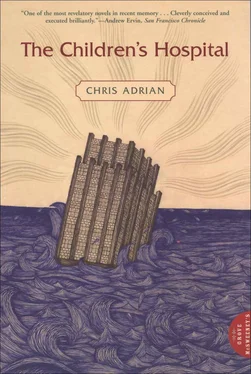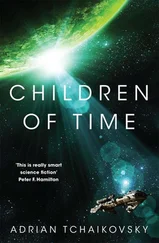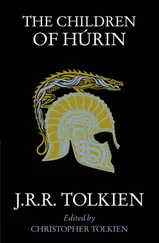“Come away from there,” she said, boxing up a steaming berry pie, because he was squatting in a corner, poking at a pile of ash. He wiped his finger on his pajama bottom and ran to her side, then looked up at her. “It smells like french fries,” he said, offering her his finger.
“I hadn’t noticed,” she said, gathering Rob away from his ice cream. He had made twenty different flavors and couldn’t be convinced that it was impractical to take them all the way to the roof, and spent five minutes almost in tears trying to choose between them.
“Strawberry is so nice,” he said to Pickie, who nodded sympathetically. “And Honey-Lavender is very sweet. Caramello is kind. Ginger is not the best, certainly, but her feelings would be hurt so bad, so bad, if we left her behind. Mango is outrageous. She can stay, probably.” In the end they each picked one and got going, taking the long way up because Rob wanted to walk, and because Jemma wanted to see how Pickie reacted to the familiar sites of the hospital.
He just stared as they passed the monuments to the early dead, speaking only when he caught sight of the toy, still turning and ticking and hooting and ringing in the lobby, to ask if he could go play with it later, and only showing any emotion when they heard Ishmael cry out from a lower floor, his deep groan rising up into a high, trailing shriek. Pickie clung to her and said, “I’m afraid.” Rob had dropped his ice cream and was sitting on the floor with his hands over his ears.
“It’s just a raccoon,” Jemma said.
“Don’t let him get me again,” Pickie said.
“Again?” Jemma said, but he wouldn’t speak any more of it. She petted Rob’s head and pried his hands away from his ears and told him everything was all right. He clung to her also, forgetting his ice cream, so the going was a little slow for the last two floors. As soon as they got out into the daylight, they both sprang away and went capering over the grass.
“Here we are,” she thought, after it was all set up. Another picnic; she was a little sick of them, in the way that she was a little sick of everything, sick of rounding with the bucket which was monotonous in a way that was similar to the old monotony, temporarily relieved by her gift — once again her part was small and not entirely necessary. It wasn’t hard to imagine — she is dead and little six-legged robots do the work of washing the children, combing their hair and shining their faces, fluffing their pillows, singing to them, a choir of broken mechanical-nose voices. In that moment she was sick of Rob, too sweet and too stupid and too empty, and sick already of the new Pickie, usual and dull and likely to run screaming from a feast of blood. Two days past her due date, she was sick of being pregnant, sick of her backache and clumsy walk and the false contractions. She looked out at the water, at the flat calm ocean and the clouds marching again like huge animals over the horizon (she’d seen those, too, the elephant and the giraffe and even the toothy sandworm, and was sick of all of them) and thought how thoroughly tired she was of waiting.
The botch had taken none of Rob’s gymnastic skill, but Pickie had obviously had his bounce washed out. He did clumsy somersaults, pedaling his feet to get his bottom turned over his shoulders, while Rob did perfect back handsprings in a moving circle all around him. He turned and twisted into cartwheels; Pickie stood and hopped from one foot to the other, waving his hands above his head. It took her a moment to realize that they were performing for her. Rob turned again and did cartwheels toward Pickie, then twisted and did a flip clear over his head to land behind him. They both threw out their arms and hands, seeming to offer her the empty sky and the empty sea and more empty days of waiting. She clapped politely, trying not to weep, because she knew it would just get Rob started crying if she did. Pickie sprang up and ran toward her, his arms out, his face so utterly different from how it had been before. She steeled herself for one of his brutal, squeezing hugs, but he only leaned against her like an ordinary child, and sighed in her neck, and said, “I’m having such a good time at the party.”

There is a face at her window that she does not see, and a presence that she does not sense, perhaps because she simply does not wish to. His rage and gall ought to be a blight on her vision; it ought to call through the stone and steel; it ought to shine through the glass. But she dances blithely with Rob while Pickie naps under the table, and she puts Pickie in the tub without noticing, though when she comes out of the bathroom Ishmael is looking right at her face. After she and Rob sit on edge of the bed, mouths locked, each clutching and rubbing at the other’s back, he presses his face closer to the window, and a pale circle of nose blooms against the glass, plainly visible, but now she is far too distracted to notice. More and more of his face — a piece of forehead, an eye, the chin with the thick, madman’s beard — appears as they go on, and at some point he cannot contain himself anymore and pounds a hand against the wall. Still, there is nothing for him, from her, except that she spares him a thought as she falls asleep, deep in the arms of her abominable companion.
My brother watches, his breath catching not from fatigue at hanging on the wall, his fingers and his toes pressed into the stone, but from mounting anger. Just when he thinks it can’t get any worse, he feels it more, looking at her, watching her bounce backward in the lap of the dead creature, the extraordinary rage that makes him want to take the whole place in his hands and crumple it like a box. I like to complain about my job — what a chore, to watch all the time, and never be able to do anything, how dull, and how painful, to love someone and never speak to her, never touch her, never see her with mortal eyes. But how much worse, brother, to labor under a mandate of rage, and how difficult and complex to have these feelings for her, to want so much to put your face through the glass and accuse her, to put your hand through the wall and give her a smack. But it’s not time for that yet. I say it to you and our sister says it and our brother says it. You do not hear any of us, but you understand, anyway.
Rage and the memory of rage and the hope of rage — O, tonight it seems to me the worse job of all, to see what I see and have to hate it, to hate it and want to destroy it, not knowing why or how, your impotence only making you more angry. It is no way for an angel to live, angry at a mortal for mortal weakness, for being in love, for holding on to a beloved scrap. As a toddler she was no more at fault for hiding a scrap of meat under her pillow, or clinging to Moronica, digging her up after she was sacrificed, loving her until she was just a scrap of dirty fur. It is my exclusive luxury to think this, but I would share it with you, to touch your rage with fondness for her, or even jealousy, anything but that bright consuming anger.
All the other windows are empty — you look in all you pass and see the faces of children picked out under the lights our sister dims every night at nine. You feel nothing as you stare at them — it’s almost nice, a patch on your anger, but all around you see the memory of the accused, and you shout at them above the noise of the wind and the waves, and pound on the glass with your head.
On the roof you do your own dance, jumping and shouting, calling out to people long dead at our brother’s hand, saying Snood! Tiller! Sundae! Their names are accusations. You walk in a circle, beat at your face, pick at your flesh where it feels too hot, lie down under the sycamore tree, grabbing violently between your legs, a vision unfolding in your head — you are beside her and above her, below her and within her, shouting into her face, so close your nose is pressing against her cheeks, and say it to her again and again, throwing the words through her protests. She is the only one left and it’s all her fault.
Читать дальше













